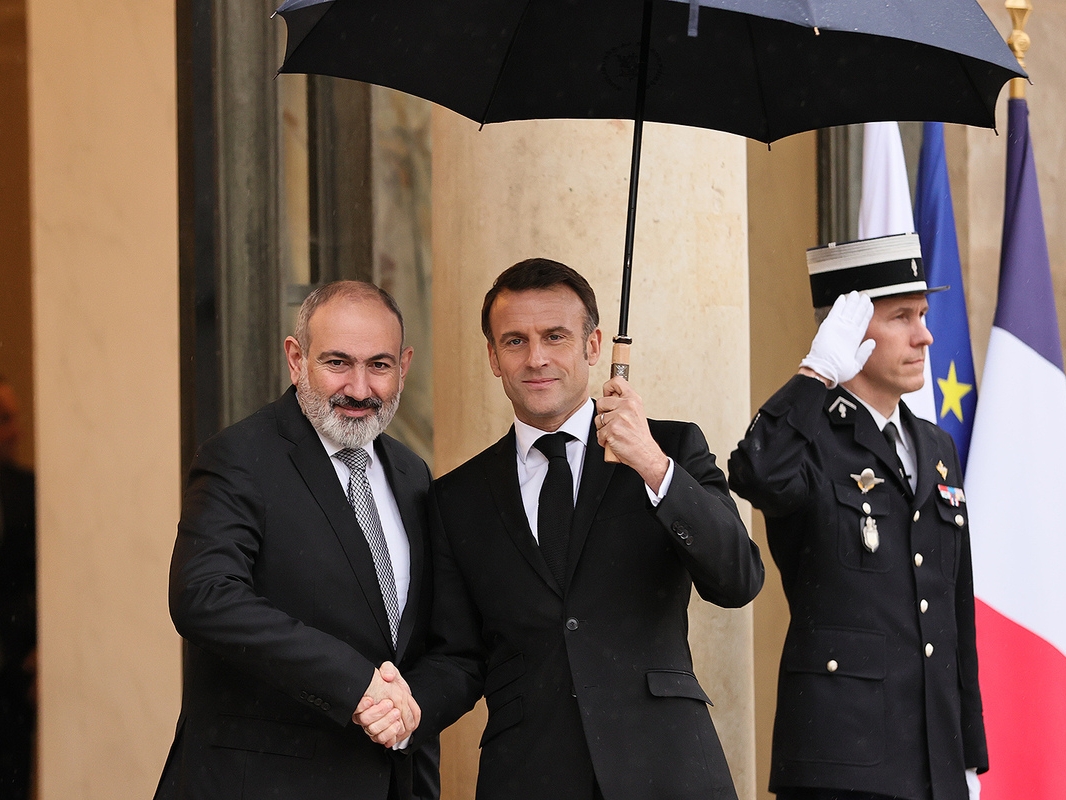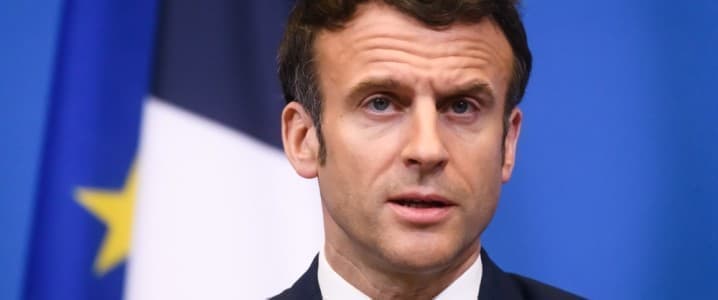France, a long-standing ally of Armenia within the European Union, is extending military assistance to Armenia, including armored vehicles and munitions, in order to enhance its defense capabilities amidst escalating regional tensions.
Azerbaijani officials and media have criticized France, accusing it of bias and questioning its role in the peace process while suggesting Germany as a neutral mediator.
President Macron’s condemnation of Azerbaijan’s military actions and his support for Armenia’s territorial integrity and democratic processes have strained diplomatic relations, with Azerbaijan denouncing Macron’s remarks as “unacceptable” and reflective of a double standard.
Recently, French President Emmanuel Macron sparked controversy over Ukraine by suggesting the deployment of NATO troops in the Russian-Ukrainian conflict. In the South Caucasus, although receiving less attention in the West, French actions are also contributing to heightened tensions.
While Macron’s proposal regarding troop deployment was swiftly rejected by Atlantic Alliance allies, France’s diplomatic maneuvers in the Caucasus, particularly its efforts to strengthen military cooperation with Armenia in recent months, have largely flown under the radar of Western attention. However, Azerbaijan is keen on excluding Paris from the ongoing Armenian-Azerbaijani peace process.

Azerbaijan Accuses France of Double Standards in South Caucasus Conflict, Amid Military Support to Armenia (Credits: Eurasianet)
France has historically been a staunch supporter of Armenia within the European Union, and Armenian Prime Minister Nikol Pashinyan reaffirmed the close bilateral relationship during his meeting with Macron in France in late February.
Following the meeting, Macron reiterated France’s support for Armenia’s independence, territorial integrity, democratic processes, and peaceful aspirations. He also criticized Azerbaijan’s use of force in a February 13 exchange of gunfire along the Armenian-Azerbaijani border, which resulted in the deaths of four Armenian soldiers.
Macron urged Azerbaijan to adhere to a World Court ruling ensuring the safe return of any Armenian refugees to Nagorno-Karabakh who wished to do so. He also called on Azerbaijan to take responsibility for reducing military tensions following its reconquest of Karabakh in 2023.
Armenia’s defeat in the Karabakh conflict strained its relations with Russia, its longtime protector, heightening the significance of its relationship with France.
Since Azerbaijan’s completion of its takeover of Karabakh, France has engaged in various military assistance agreements with Armenia, providing armored vehicles, arms, equipment, and munitions and enhancing air-defense capabilities. Officials stress that this assistance is defensive in nature.
During a visit to Yerevan on February 23, French Defense Minister Sébastien Lecornu emphasized that assisting Armenia is a foreign policy priority for France. Armenian Defense Minister Suren Papikyan noted that France’s support allows for long-term planning in the years ahead.
Pashinyan, in an interview with France24, accused Azerbaijan of seeking further territorial conquests, citing the failure of Azerbaijani officials to officially recognize the current border between the two states. He expressed concern that an attack on Armenia is highly likely, given statements from Baku.
Peace talks involving the Armenian and Azerbaijani foreign ministers were hosted by Germany on February 28, but did not yield tangible progress on a settlement. Azerbaijani media portrayed Germany as a neutral mediator while criticizing France for bias.
Baku has expressed displeasure with what it perceives as French interference. The Azerbaijani Foreign Ministry labeled Macron’s comments on the February 13 firefight as “unacceptable” and accused Paris of diplomatic double standards.
France, along with the United States and Russia, was one of the co-chairs of the OSCE Minsk Group, which facilitated the peace process until 2020. During this period, Armenian forces controlled Karabakh and surrounding Azerbaijani regions.
Azerbaijani President Ilham Aliyev has expressed dissatisfaction with Macron’s leadership, contrasting it unfavorably with previous French presidents’ balanced approach to the region.























